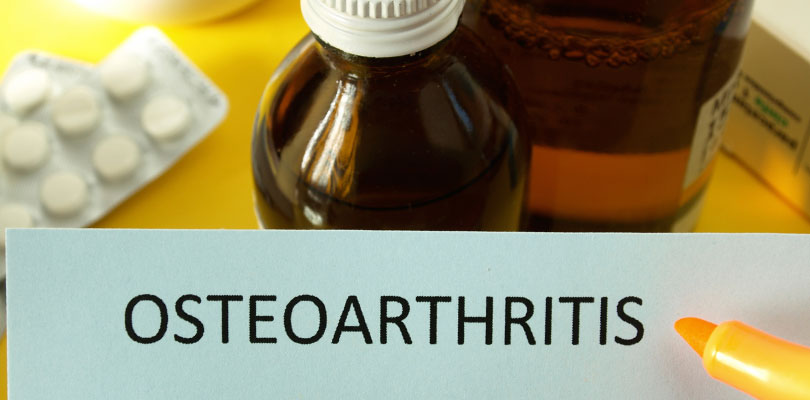What Is a Diet?
As many of us strive to live a healthier lifestyle, diet becomes one of the primary focuses for making sure our bodies are getting what it needs to thrive. So, what is a diet exactly? Diet is a term that many of us are familiar with. However, diet is a broad term that is meant to describe foods we put into our bodies.
For many of us, when we hear the word “diet,” we automatically think about the foods we should avoid when in reality, diet refers to what we ingest.
Types of Diets
It’s no secret that there are a variety of diets out there designed to help people lose weight, have more energy, or can help control a variety of health conditions. Let’s take a look at a few of the most common types of diet.
- Keto: Low-carb and high-fat diet that focuses on weight loss.
- Paleo: Diet that focuses on returning to what humans ate during the Paleolithic era which involves avoiding processed foods.
- Whole30: Similar to the Paleo diet, but focuses on short-term elimination that allows your body to reset and operate at a higher level.
- Vegan/Vegetarian: Diet that eliminates meat (vegetarian diets) or animal-based products (vegan diet).
- Low FODMAP: Diet intended to limit certain types of carbs that aren’t absorbed well by the body.
- MIND: Diet that focuses on brain function and reducing your chances of developing Alzheimer’s later in life.
- Weight Watchers: Program designed to help people make better eating choices, workout more, and improve their overall health through a group-focused point-based diet plan.
- Atkins: Low-carb diet that helps people lose a significant amount of weight.
This is by no means the entire list of diets (there are hundreds, if not thousands!), but this is a general look at some of the goals that many people have as they strive for healthier living.
What Type of Diet is Right for You?
With so many diets, how can you be sure you are choosing the right one for yourself? The truth is, there are a variety of options out there, but it’s more about selecting a diet that works for your lifestyle. It should never be about quick fixes or unachievable weight loss goals. Instead, you should focus on choosing a diet that improves your quality of life.
Diet and Nutrition 101: Carbohydrates, Fats, and Protein
It’s important to understand the basics of nutrition and why you need certain nutrients in your diet to perform daily activities. Carbohydrates, proteins, fats, vitamins, and minerals are the major nutrients your body requires. Fiber and water are also essential components of a healthy diet.
Carbohydrates
Carbohydrates (carbs) like vitamins and minerals, carbs provide a great source of energy for the body. The primary sources of carbohydrates in foods are sugar, fiber, and starch.
Carbohydrates can be classified as complex carbs or simple carbs – complex carbs take longer to digest and contain more fiber, vitamins, and minerals than simple carbohydrates – the bulk of the carbs we consume should be complex. Rice, oatmeal, breads, vegetables, and beans (chickpeas, kidney beans, etc.) are all good sources of complex carbohydrates.
Fats
Fats are essential in the manufacturing of hormones and act as a carrier for fat-soluble vitamins. Fat is made from smaller units called fatty acids; these are broken down into essential fatty acids (the body needs these, and they must be obtained through the diet) and nonessential fatty acids (the body can synthesize these fats).
Fats are classified as either saturated, polyunsaturated or monounsaturated, depending on their chemical structure. Saturated fats have been linked to many health conditions, such as obesity and increased LDL (bad cholesterol), and should be consumed sparingly in any diet.
Although you should try to limit the amount and kind of fat you consume, remember fat is still an essential part of your diet and is needed for many important functions. Make sure you choose the heart-healthy kinds of fat such as olive oil, raw nuts, and avocados.
Because anaphylaxis can turn deadly in a short amount of time, here are six anaphylaxis symptoms to be aware of to help you identify it quickly.
Protein
Protein is another important nutrient, as it helps maintain and replace the tissues in your body, keeps your hair, skin, and nails healthy, and boosts your immune system.
This nutrient is composed of smaller units called amino acids. They are classified as essential and nonessential amino acids. Our bodies aren’t able to produce essential amino acids; therefore they must be derived from the foods we eat.
Good sources of protein and essential amino acids include skinless chicken breast, egg whites, extra lean ground beef, and cottage cheese. You should be consuming a source of protein with each meal.
Tips for Starting a Diet
Before starting a diet, you should understand that this is a significant change for your body. To make the most of your new eating habits, you should follow a few simple tips to make sure you are set up for success and selecting a diet that is right for you.
Talk to Your Doctor
Before you begin a diet, you should discuss it with your doctor. Some fad diets are very body for your body, and you shouldn’t try to follow them at all. Even diets that are proven to help people lose weight and feel great may not be right for you.
Your doctor will have a clear picture of your health and can provide you with additional tips for choosing the proper diet for your situation.
Make Goals
Your diet should have a goal. For many people, it’s a weight loss goal which is completely fine. However, make sure you are setting a realistic goal and make sure that you break it down into smaller achievable steps. This will help you build confidence and the momentum to stay on your new healthy diet.
Make a Food Journal
A food journal helps people to visualize what they are putting into their body. We can easily tell ourselves that it’s okay to have a cheat day or rationalize getting seconds for dinner, but if you write down everything you consume, then you may recognize that you are stepping away from your goals. It can also be used as a helpful tool to remind yourself about how well you are doing, too.
Make Sure You Are Eating Enough
Sometimes, people are so dedicated to losing weight that they assume they should eat less and less. This is not true. It’s not about depriving your body of nutrients. Instead, it’s about focusing on foods that fuel your body. You may be surprised to learn just how much you can and should eat while on any kind of healthy diet.
Body Type, Weight, and Waist Size
When it comes to dieting we tend to put a great deal of focus on the numbers on the scale, or what we feel we should weigh. We have a magic number in our heads and we work towards achieving it. But how do we know that a number is appropriate or even achievable for our body types?
Before you step onto your bathroom scale and begin critiquing yourself, realize that there are a number of ways to determine your ideal body weight. You can use an ideal body-weight calculator by using your height, but this fails to take your body type into consideration.
There are three main body types: endomorph, ectomorph, and mesomorph.
- Endomorphs individuals typically have a larger bone structure and carry more weight on their frames.
- Ectomorphs have narrower frames and are usually naturally thin because of a faster metabolism. Individuals with this body type do need to exercise, however, if they want their bodies to appear shapelier.
- Mesomorphs possess an athletic body structure, with broader shoulders and a naturally muscular build. They tend to have faster metabolisms, which helps them to build lean muscles.
There is much more to our bodies than fat alone, which is why an endomorph and an ectomorph can't realistically fit into the same ideal weight range. This is where waist size comes in and the numbers on your scale become less important. Waist size, combined with height, is a good indicator for whether a person is over or underweight.
You can find out if your waist size is appropriate for your body by using a waist-hip-ratio calculator. This calculation provides a ratio of your hip size to waist size.
It's important to remember that no form of weight or body-fat measurement is foolproof. Your health and the way you feel about your body is what really matters. If you maintain a nutritious, balanced diet and get regular exercise there is no reason to step on a scale or pick up a measuring tape at all.
Overview
Diets are sometimes seen as an easy way to shed a few pounds. However, a diet is more about a lifestyle change than simply losing weight.
For many people, a diet can not only help them reach their weight loss goals, but it can also help improve their energy levels and live a more productive life. It can also help them make healthier eating choices.
Of course, if you are considering making a change in your diet, you should discuss the implications with your healthcare provider.







